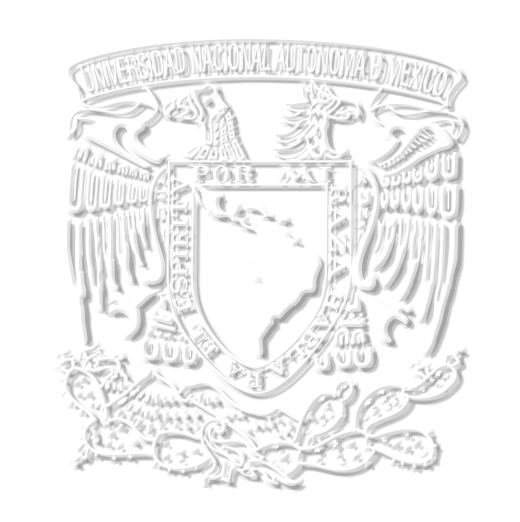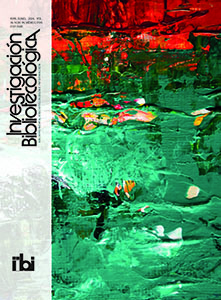Abstract
In a democratic government scheme, the participation of various actors is an important pillar in public decision-making. In this context, for participation to be adequate and well-founded, there is a necessity for useful and relevant information that provides tools for correct deliberation. This article analyzes –along with the new characteristics surrounding information obtaining and participation in digital channels– the risks raised by the quality of consulted information as well as the emergence and consolidation of a new architecture in modern society. Based on the surveillance of citizen thinking and acting, this architecture emerges due to the accumulation of data left by the constant interaction of individuals with technologies throughout different aspects of personal and collective life. The article concludes by warning about the possibility that the democratic quality of nations may be diminished owing to the phenomenon of reaffirmation of ideas and ideological stances occurring during information obtaining, consultation, and exchange in digital channels, specifically in digital social networks.
References
Abella, Alberto, Marta Ortiz-de-Urbina-Criado y Carmen De-Pablos-Heredero. 2017. “A Model for the Analysis of Data-Driven Innovation and Value Generation in Smart Cities’ Ecosystems”. Cities 64: 47-53. https://doi.org/10.1016/j.cities.2017.01.011
Bakir, Vian, y Andrew McStay. 2018. “Fake News and the Economy of Emotions: Problems, Causes, Solutions”. Digital Journalism 6 (2): 154-75. https://doi.org/10.1080/21670811.2017.1345645
Beck, Ulrick. 1998. La sociedad del riesgo global. Barcelona: Paidós Ibérica.
Beck, Ulrich, y Elizabeth Beck-Gernsheim. 2003. La individualización. El individualismo institucionalizado y sus consecuencias sociales y políticas. Barcelona: Paidós Ibérica.
Castells, Manuel. 2002. La Era de la Información. Volumen I: La Sociedad Red. Ciudad de México: Siglo XXI Editores.
Corvalán, Juan Gustavo. 2017. “Administración pública digital e inteligente: transformaciones en la era de la inteligencia artificial”. Revista de Direito Econômico e Socioambiental 8 (2): 26-66. https://doi.org/10.7213/rev.dir.econ.soc.v8i2.19321
Dahlberg, Lincoln. 2011. “Re-constructing Digital Democracy: An Outline of Four ‘Positions’”. New Media & Society 13 (6): 855-72. https://doi.org/10.1177/1461444810389569
Dias, Patricia. 2014. “From ‘Infoxication’ to ‘Infosaturation’: A Theoretical Overview of the Cognitive and Social Effects of Digital Immersion”. Ámbitos. Revista Internacional de Comunicación 24: 1-11.
Drucker, Peter. 1968. “La revolución educativa”. En Los cambios sociales. Fuentes tipos y consecuencias, compilado por Amitai Etzioni y Eva Etzioni, 256-71. México D.F.: Fondo de Cultura Económica.
Esposito, Christian, Florin Pop y Jun Huang. 2019. “Application of Soft Computing and Machine Learning in the Big Data Analytics for Smart Cities and Factories”. International Journal of Information Management 49: 489-90. https://doi.org/10.1016/j.ijinfomgt.2019.08.003
Flichtentrei, Daniel. 2017. “Posverdad: la ciencia y sus demonios”. IntraMed, 2 de mayo de 2017. https://www.intramed.net/contenidover.asp?contenidoid=90809
Frau-Meigs, Divina, Brian O’Neill, Alessandro Soriani y Vitor Tomé. 2017. Digital Citizenship Education - Volume I: Overview and New Perspectives. Council of Europe.
García Guitián, Elena. 2016. “Democracia digital. Discursos sobre participación ciudadana y TIC”. Revista de Estudios Políticos (173): 169-93. https://doi.org/10.18042/cepc/rep.173.05
Gil-García, José Ramón, Judith Mariscal y Fernando Ramírez. 2008. Gobierno electrónico en México, nro. 214. México D.F.: Documentos de Trabajo del CIDE. https://www.cide.edu/publicaciones/status/dts/DTAP%20214.pdf
Han, Byung-Chul. 2022. Infocracia. La digitalización y la crisis de la democracia. Barcelona: Editorial Taurus.
Keyes, Ralph. 2004. The Post-Truth Era. Dishonesty and Deception in Contemporary Life. Nueva York: St. Martin’s Press.
Kopetz, Hermann, y Wilfried Steiner. 2022. “Internet of Things”. En Real-Time Systems: Design Principles for Distributed Embedded Applications, editado por Hermann Kopetz y Wilfried Steiner, 325-41. Cham: Springer International Publishing. https://doi.org/10.1007/978-3-031-11992-7_13
Kreitner, Richard. 2016. “Post-Truth and Its Consequences: What a 25-Year-Old Essay Tells Us About the Current Moment”. The Nation, 30 de noviembre de 2016. https://www.thenation.com/article/archive/post-truth-and-its-consequences-whata-25-year-old-essay-tells-us-about-the-current-moment/
Lazer, David, Matthew Baum, Yochai Benkler, Adam Berinsky, Kelly Greenhill, Filippo Menczer, Miriam Metzger et al. 2018. “The Science of Fake News”. Science 359 (6380):1094-96. https://doi.org/10.1126/science.aao2998
Li, Shancang, Li Da Xu y Shanshan Zhao. 2015. “The Internet of Things: A Survey”. Information Systems Frontiers 17 (2): 243-59. https://doi.org/10.1007/s10796-014-9492-7
Maldonado-Meléndez, Mirko. 2022. “La administración pública digital en Latinoamérica: un balance sobre su implementación y el estado de la cuestión”. En La administración digital, coordinado por Susana E. Castillo Ramos-Bossini, 403-32. Madrid: Dykinson.
Marek, Lucas, Malcolm Campbell y Lily Bui. 2017. “Shaking for Innovation: The (Re)building of a (Smart) City in a Post Disaster Environment”. Cities 63: 41-50. https://doi.org/10.1016/j.cities.2016.12.013
Mayer-Schönberger, Viktor, y Kenneth Cukier. 2013. Big Data. La revolución de los datos masivos. Ciudad de México: Editorial Océano.
Meier, Andreas. 2012. “Knowledge Society”. En eDemocracy & eGovernment: Stages of a Democratic Knowledge Society, editado por Andreas Meier, 191-204. Berlín: Springer-Verlag. https://doi.org/10.1007/978-3-642-24494-0_10
Mokyr, Joel. 1992. The Lever of Riches: Technological Creativity and Economic Progress. Nueva York: Oxford University Press.
Naser, Alejandra, y Gastón Concha. 2011. El gobierno electrónico en la gestión pública. Santiago de Chile: Naciones Unidas, Comisión Económica para América Latina y el Caribe.
Pariser, Eli. 2017. El filtro burbuja: cómo la red decide lo que leemos y lo que pensamos. Barcelona: Taurus.
Ramos Chávez, Alejandro. 2015. “Ciudadanía en la pantalla. Información y acción colectiva a través de Internet”. Revista General de Información y Documentación 25 (2): 603-26. https://doi.org/10.5209/rev_RGID.2015.v25.n2.51231
Rose, Karen, Scott Eldridge y Lyman Chapin. 2015. La Internet de las cosas. Una breve reseña: para entender mejor los problemas y desafíos de un mundo más conectado. Internet Society. https://www.internetsociety.org/wp-content/uploads/2017/09/report-InternetOf-Things-20160817-es-1.pdf
Ruckenstein, Minna, y Natasha Dow Schüll. 2017. “The Datafication of Health”. Annual Review of Anthropolog y 46: 261-78. https://doi.org/10.1146/annurev-anthro-102116-041244
Sadowski, Jathan. 2019. “When Data is Capital: Datafication, Accumulation, and Extraction”. Big Data & Society 6 (1): 1-12. https://doi.org/10.1177/2053951718820549
Sakaiya, Taichi. 1995. Historia del futuro. La sociedad del conocimiento. Santiago de Chile: Editorial Andrés Bello.
Sancho Royo, David. 2003. “Gobierno electrónico y participación: factores de éxito para su desarrollo”. Revista del CLAD Reforma y Democracia 25: 201-22.
Trabado Cabado, José Manuel. 2004. “Las trampas del hipertexto: saturación informativa y los nuevos cronotopos de lectura”. Arte y Nuevas Tecnologías: X Congreso de la Asociación Española de Semiótica: 984-95. https://dialnet.unirioja.es/servlet/articulo?codigo=940580
Watanabe-Crockett, Lee, y Andrew Churches. 2018. Growing Global Digital Citizens: Better Practices that Build Better Learners. Bloomington: Solution Tree Press.
Authors:
- They must sent the publication authorization letter to Investigación Bibliotecológica: archivonomía, bibliotecología e información.
- They can share the submission with the scientific community in the following ways:
- As teaching support material
- As the basis for lectures in academic conferences
- Self-archiving in academic repositories.
- Dissemination in academic networks.
- Posting to author’s blogs and personal websites
These allowances shall remain in effect as long as the conditions of use of the contents of the journal are duly observed pursuant to the Creative Commons:Attribution-NonCommercial-NoDerivatives 4.0 license that it holds. DOI links for download the full text of published papers are provided for the last three uses.
Self-archiving policy
For self-archiving, authors must comply with the following
a) Acknowledge the copyright held by the journal Investigación Bibliotecológica: archivonomía, bibliotecología e información.
b) Establish a link to the original version of the paper on the journal page, using, for example, the DOI.
c) Disseminate the final version published in the journal.
Licensing of contents
The journal Investigación Bibliotecológica: archivonomía, bibliotecología e información allows access and use of its contents pursuant to the Creative Commons license: Attribution- Non-commercial-NoDerivatives 4.0.

Investigación Bibliotecológica: archivonomía, bibliotecología e información by Universidad Nacional Autónoma de México is licensed under a Creative Commons Attribution-NonCommercial-NoDerivatives 4.0 Internacional License.
Creado a partir de la obra en http://rev-ib.unam.mx/ib.
This means that contents can only be read and shared as long as the authorship of the work is acknowledged and cited. The work shall not be exploited for commercial ends nor shall it been modified.
Limitation of liability
The journal is not liable for academic fraud or plagiarism committed by authors, nor for the intellectual criteria they employ. Similarly, the journal shall not be liable for the services offered through third party hyperlinks contained in papers submitted by authors.
In support of this position, the journal provides the Author’s Duties notice at the following link: Responsibilities of authors.
The director or editor of the journal shall notify authors in the event it migrates the contents of the journal’s official website to a distinct IP or domain.








